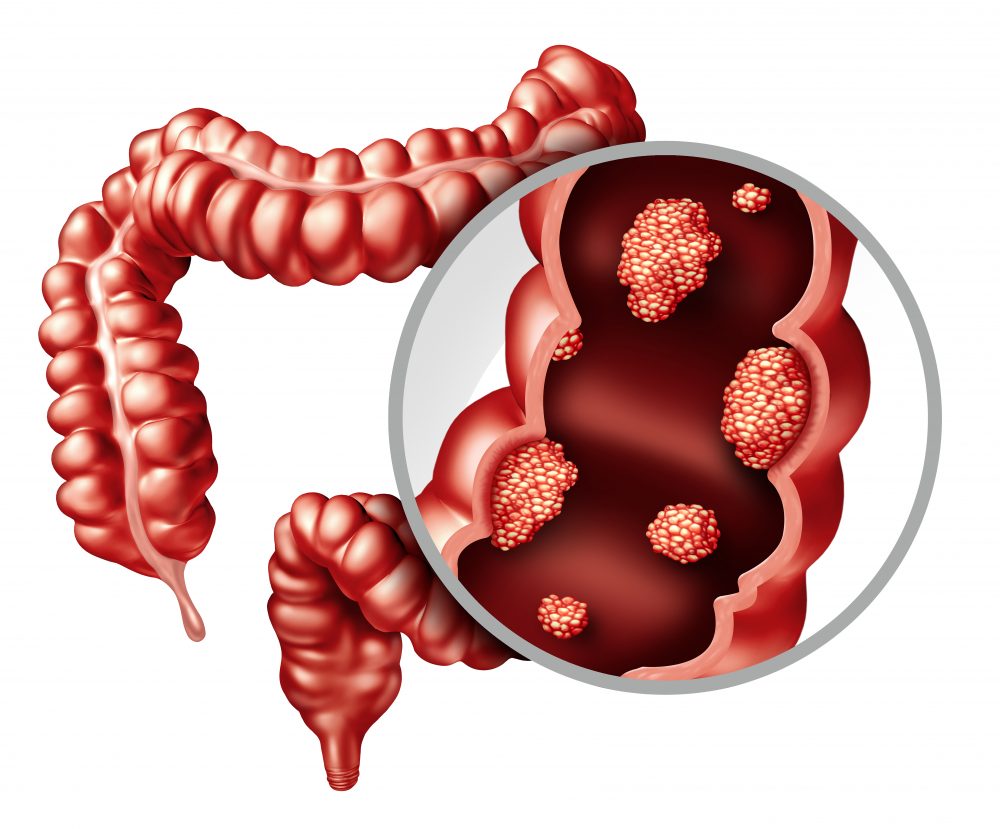
Colorectal cancer is the most common type of cancer in Singapore, and it’s on the rise. Dr Mark Fernandes, Gastroenterologist, gutCARE Digestive•Liver•Endoscopy Associates, sheds light on its symptoms, diagnosis and treatment.
WHO IS AT RISK
Risk factors for colorectal cancer include family history, obesity and diabetes mellitus. Chinese have a higher risk than Malays and Indians, and men appear to have a slightly higher risk than women.
The growing incidence of colorectal cancer in Singapore over the last 30 years has been attributed to changes in diet. In particular, the introduction of a western diet and the growing availability of processed foods are thought to be largely responsible for the rise in cases of colorectal cancer. People who suffer from diabetes mellitus and obesity are also at a higher risk of developing colorectal cancer.
Furthermore, the establishment of colorectal cancer screening programmes has also resulted in more cases being diagnosed and treated than in the past.
WHO SUFFERS MOST
In general, constipation affects the elderly more than the young. Not only do most of the diseases linked to constipation occur in later life, but the incidence of poor nutrition and inactivity increases in old age due to a wide range of reasons.
DETECTION AND DIAGNOSIS
Early stage colorectal cancer may be completely asymptomatic. However, warning signs to look out for include change in bowel habits, blood in the stools, abdominal pain or bloating and unexplained weight loss.
Colonoscopy is recommended when a colorectal cancer screening test such as the faecal occult blood test is positive, when a patient presents with symptoms, or they have a family history of colorectal cancer.
A colonoscopy is a test which allows your specialist doctor to look inside your colon using a long thin flexible tube with a camera and light source at the end known as a colonoscope. The tip of the colonoscope also has ports which allow water to be flushed through to clean away debris in the colon, as well as a biopsy port through which instruments such as forceps can be passed to obtain biopsies or remove polyps from the colon and rectum.
Aside from colorectal cancer, a colonoscopy is helpful to detect polyps, inflammation, ulcers, diverticula and haemorrhoids.
Any growth in the form of a polyp or tumour or areas of inflammation warrants further investigation.
NEXT STEPS
If your doctor suspects colorectal cancer, he or she will typically obtain biopsies of the tumour or polyp to send off to the laboratory for analysis by a pathologist under a microscope. Once the diagnosis of cancer is established, the next step is the staging of the cancer to see how advanced the cancer is at the time of diagnosis. This may be done using computed tomographic (CT) scanning or a PET scan.
If the tumour is operable and the patient is a suitable candidate for surgery, surgical excision of the primary cancer is usually the first step. In addition, chemotherapy and/or radiotherapy as well as newer biological targeted therapies may be necessary as adjuvant or palliative treatment for colorectal cancer.
THE CASE FOR COLONOSCOPY
Colonoscopy is one of a few screening modalities that actually help to detect pre-cancerous lesions known as polyps. Given time, these polyps may eventually develop into cancers. By undergoing a colonoscopy, patients are given the opportunity to remove these polyps, hence preventing them from ever developing into cancer.
Of course, screening colonoscopies also help to detect early stage cancers before they present with symptoms and give patients the opportunity to get them excised or removed before they develop further.
The good news is, colonoscopy can be done as a day surgery procedure and does not require a hospital stay. It generally takes less than 30 minutes and is performed under sedation so that the patient is comfortable throughout the procedure. Your doctor will review the results of the colonoscopy on the day, though the results of biopsies may need to be reviewed at a later date.
If you are in an at-risk group, the message is clear. Make sure you go for a colorectal cancer screening – the sooner the better. Early detection could save your life.
FACTS AND FIGURES
According to the Singapore Cancer Registry Annual Report 2015, some 35 people are diagnosed with cancer every day in Singapore — with colorectal cancer being the most common diagnosis. A total of 9,807 new cases were diagnosed between 2011 and 2015.
Colorectal cancer is the most common type of cancer among men, and the second-most commonly diagnosed cancer among women after breast cancer. In Singapore, approximately one in six men and one in seven women diagnosed with cancer between 2011 and 2015 had colorectal cancer.
Treatment is also most effective in the early stages of colorectal cancer. The survival rates for men and women are around 84 percent and 86 percent respectively, if the cancer is detected at stage one. However, survival rates drop steeply to just 10 percent for men and 11 percent for women if the cancer reaches stage four.
Article contributed by Dr Mark Fernandes, an accredited doctor at Mount Alvernia Hospital.
Source: https://www.healthhub.sg/a-z/diseases-and-conditions/728/9-Must-Know-Facts-About-Colorectal-Cancer
This article is taken from our My Alvernia Magazine Issue #37. Click here to read the issue on our website or on Magzter.